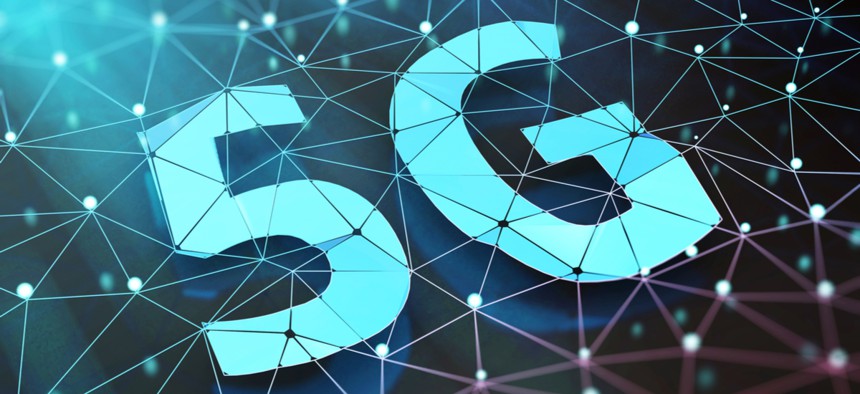Cutting Regulations Could Entice 5G Network Investment, says FCC Commissioner

Iaremenko Sergii/Shutterstock.com
Nationwide high-speed internet promises many benefits but still relies on private companies to foot the infrastructure bill.
As people become ever more reliant on internet connectivity in their daily lives, building a nationwide 5G network will make Americans healthier, more efficient, better educated and “change the way we interact with the world,” according to one Federal Communications Commission leader.
“We’re moving from a world where we all have our wireless devices in our pockets to one where our entire landscape will be connected to the internet of things,” said FCC Commissioner Jessica Rosenworcel.
The benefits of 5G are “almost hard to describe,” she explained Tuesday at an event hosted by Bloomberg. She compared the change to telephones evolving from devices for voice calls to pocket-sized personal computers. Rosenworcel said deploying fifth-generation broadband would have high upfront costs but could stimulate the economy and create millions of jobs in the long run.
» Get the best federal technology news and ideas delivered right to your inbox. Sign up here.
A private-sector study conducted earlier this year showed that deploying 5G would generate up to 3 million new jobs and boost the country’s annual GDP by more than $500 billion. But these benefits come at a cost. Telecom companies would face a roughly $275 billion price-tag to deploy 5G over a period of seven years, and the FCC has been slow to drum up significant private-sector investment.
This high cost stems largely from the fact that vast swaths of the country have little or no broadband infrastructure in place. The FCC estimates more than 34 million Americans don’t have access to high-speed internet service, the vast majority of whom live in rural, less densely populated areas.
These regions could benefit significantly from the many jobs created by the large infrastructure build, but the FCC must find a way to incentivize companies to take the plunge, said FCC Commissioner Brendan Carr, who also spoke at the Bloomberg event.
He believes one major way the agency could help curb the costs of building a 5G network is to scale back its regulations on infrastructure deployment.
Carr said the FCC is currently considering a proposal to streamline the process of building the small cell facilities needed to implement 5G coverage. If the agency were to adopt even some of the proposed changes, he explained, the decrease in regulatory costs would make it profitable for companies to expand broadband access to an additional 26.7 million homes across the U.S.
Rosenworcel acknowledged that a more connected 5G landscape could increase potential cybersecurity concerns, but it would also have a positive impact on less obvious fields like education.
Citing a report from the Senate Joint Economic Committee, she discussed how the 12 million U.S. children who don’t have internet access find themselves at a severe disadvantage in school.
The so-called “homework gap” deprives children in rural areas of the academic resources available to their peers elsewhere and represents a concrete problem the FCC “is capable of solving,” she said.
Virginia Gov. Terry McAuliffe echoed many of Rosenworcel’s sentiments.
“You cannot have a quality 21st-century education if you don’t have internet access,” he said.
“There’s nothing more crippling to a school.”
McAuliffe said every school in Virginia had broadband access and highlighted legislation fhe recently signed that eased requirements for building small cell infrastructure around the state to pave the way for 5G.
Though the governor praised the success of the many infrastructure projects underway in Virginia, he criticized the federal government for not doing enough to support states in undertaking costly initiatives to rebuild roads and bridges, and flesh out broadband coverage.
“We’re making great progress, but it would be great to have the federal government actually [helping],” McAuliffe said. “I wish the federal government was helping us, but they’ve done nothing but hurt us at this point. It’s time to get in the game.”
Rosenworcel and Carr will join FCC Chairman Ajit Pai and fellow Commissioners Mignon Clyburn and Michael O’Rielly on Wednesday to testify before the House Energy and Commerce Committee. The hearing is expected to touch on digital infrastructure, as well as a number of issues currently facing the FCC including net neutrality, media consolidation and agency reauthorization.
NEXT STORY: Little progress on IT governance, says NASA IG






